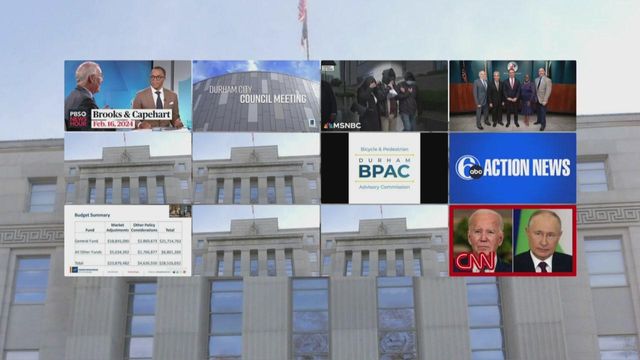A lawsuit that seeks to radically change NC education is back before the state Supreme Court. Here's what you need to know
The long-running Leandro case has the potential to significantly change education in North Carolina. The court will decide to make way for statewide changes or to send back the case down for further litigation.
Posted — UpdatedThe lawsuit, Hoke County Board of Education v. State of North Carolina, is commonly referred to as Leandro, so named for an original plaintiff who now has children of his own in North Carolina schools.
The arguments Thursday will center on scope: Should decisions in the case apply to all schools in the state? Or should they apply to schools in just five counties where school officials and families have sued: Hoke, Halifax, Cumberland, Vance and Robeson?
The money is earmarked for salaries and programs for students with disabilities and pre-kindergarten students, among other things.
The court will ultimately decide whether the proposed remedy can be implemented statewide or if it needs to hear more evidence from more school systems.
Here’s a guide to get you up to speed:
The General Assembly began offering supplemental funding for low-wealth and small county districts and disadvantaged students. Those programs provide more dollars to school systems based on their tax base and how many of their students are considered economically disadvantaged. Those funding streams haven’t swayed the courts’ opinions. Orders dating back to 2004 call for a high-quality teacher in every classroom, a well prepared and competent principal in every school and adequate resources.
In the 2022 order, the Democratic majority on the Supreme Court said courts have the right to order a remedy and compared the state’s constitutional promise of a sound basic education to an appropriation. Republican lawmakers, who control the legislature, disagreed and have said that only the General Assembly can set education funding and policy. Meanwhile, the state controller has argued he is bound by the state constitution to only cut checks when specifically directed by legislation.
The appropriation-power issue isn’t the focus of Thursday’s arguments, but it’s an important aside because pending appeals on the matter have halted the plan’s implementation.
Plaintiffs and the state believe Thursday’s hearing amounts to a re-hearing of the 2022 case.
In 2022, the state Supreme Court determined that court findings applied statewide.
But the issue of whether the findings applied statewide wasn’t the specific issue that had been appealed to the state Supreme Court ahead of its 2022 ruling.
The high court in October agreed to hear a claim over “subject matter jurisdiction,” which essentially concerns whether a court has the authority to make a certain decision.
They contend that because other counties haven’t joined the lawsuit, the plaintiffs can’t speak for them.
Related Topics
• Credits
Copyright 2024 by Capitol Broadcasting Company. All rights reserved. This material may not be published, broadcast, rewritten or redistributed.






